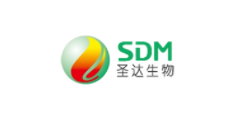标准号:BS ISO/IEC 10514-2-1998
中文标准名称:信息技术.程序设计语言.模数-2,类模数-2
英文标准名称:Information technology - Programming languages - Modula-2, generics in Modula-2
标准类型:L74
发布日期:1999/5/15 12:00:00
实施日期:1999/5/15 12:00:00
中国标准分类号:L74
国际标准分类号:35.060
适用范围:1 General
This part of ISO/IEC 10514 specifies extensions to allow generic programming facilities to be added to the base Modula-2 language defined in International Standard ISO/IEC 10514-1 without altering the meaning of valid programs allowed by the Base Language (except for the use of the new keyword introduced by this standard—See clause 5).
2 Specifications included in this part of ISO/IEC 10514
In addition to the specifications included in the Base Language this part of ISO/IEC 10514 provides specifications for:
— required symbols for programs written in ISO Standard Modula-2 with Generic extensions;
— the lexical structure and semantics of programs written in ISO Standard Modula-2 with Generic extensions;
— the syntax of programs written in ISO Standard Modula-2 with Generic extensions;
— violations of the rules for the use of the Generic extensions that a conforming implementation is required to detect;
— further compliance requirements for implementations, including documentation requirements.
3 Relationship to ISO/IEC 10514-1
This part of ISO/IEC 10514 is part two of the multi-part Standard ISO/IEC 10514. This part of ISO/IEC 10514 extends and modifies the Base Language ISO/IEC 10514-1, but the adoption of this part of ISO/IEC 10514 is optional with respect to the Base Language. This part of ISO/IEC 10514 is also independent of any other parts of ISO/IEC 10514, except for part l,and can be adopted either together with or independently of such other parts.
4 Specifications not within the scope of this part of ISO/IEC 10514
In addition to the categories of specifications excluded by the Base Language this part of ISO/IEC 10514 provides no specifications for:
— the method by which specific refinements are constructed from generic library modules;
— the method by which generic library modules, their associated refining modules, and the refinements produced by these are stored (including any correspondence between the module names and system file names where files are used).
BS ISO/IEC 10514-2-1998 信息技术.程序设计语言.模数-2,类模数-2
百检网 2021-07-16
百检能给您带来哪些改变?
1、检测行业全覆盖,满足不同的检测;
2、实验室全覆盖,就近分配本地化检测;
3、工程师一对一服务,让检测更精准;
4、免费初检,初检不收取检测费用;
5、自助下单 快递免费上门取样;
6、周期短,费用低,服务周到;
7、拥有CMA、CNAS、CAL等权威资质;
8、检测报告权威有效、中国通用;
客户案例展示
版权与免责声明
①本网注名来源于“互联网”的所有作品,版权归原作者或者来源机构所有,如果有涉及作品内容、版权等问题,请在作品发表之日起一个月内与本网联系,联系邮箱service@baijiantest.com,否则视为默认百检网有权进行转载。
②本网注名来源于“百检网”的所有作品,版权归百检网所有,未经本网授权不得转载、摘编或利用其它方式使用。想要转载本网作品,请联系:service@baijiantest.com。已获本网授权的作品,应在授权范围内使用,并注明"来源:百检网"。违者本网将追究相关法律责任。
③本网所载作品仅代表作者独立观点,不代表百检立场,用户需作出独立判断,如有异议或投诉,请联系service@baijiantest.com







